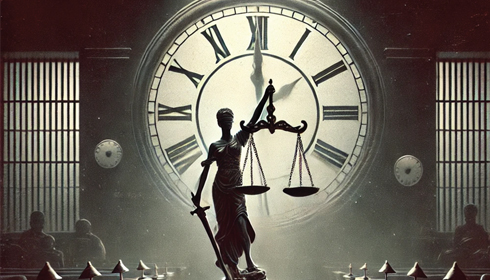
CBI Alleges Corruption and Favouritism in Medical College Appointments
In a new development, the Central Bureau of Investigation (CBI) reported serious anomalies in the appointment procedure for house staff at Aaji Carmel Medical College and Hospital before the Kolkata High Court recently. The CBI investigation, which began following the tragic murder of a trainee doctor and allegations of financial malfeasance at the Kolkata-based medical college, has yielded a slew of charges against former principal Dr. Sandeep Ghosh and other co-accused.
According to media reports, Dr. Ghosh allegedly engineered a plot to appoint his preferred applicants as House staff, manipulating examination results to assure the appointment of selected interns after their MBBS internships. Dr. Ghosh's inner circle directly appointed these individuals, allegedly choosing them primarily on connections and bribery rather than merit. The CBI investigation states that "Ghosh bypassed the process, presenting fabricated interviews and creating results to match the chosen names," according to a CBI source.
According to the CBI report, further investigation into recruiting methods in 2022 and 2023 indicated that other doctors at the college were ignorant of any official selection panel for House staff. Investigators found that the only consideration on appointment letters was final grades—a choice condemned by the CBI as "devoid of transparency and riddled with favouritism."
Dr. Ghosh's alleged illicit network went beyond appointments. The inquiry reportedly revealed that Ghosh and his friends, also charged in the case, corrupted hospital contracts by awarding lucrative tenders to pre-selected vendors for financial gain. A CBI source claimed that this was not an isolated operation, but rather a part of a broader network that aimed to secure wrongful benefits.
Meanwhile, junior physicians and student activists have been protesting for more than two months in Kolkata, seeking transparency and increased security measures in hospitals. The student activists have publicly acknowledged that the forthcoming MS/MD exams are moderating these protests.
Taking to social media, Asfaqulla Naya, a protestor stated, "Our exams are approaching, and we must concentrate on our academics. While our movement may be less visible in the coming days, we will persist in our struggle." He also emphasized the importance of education for their cause, saying, "With the right education, we strengthen our voice for justice."
Though many doctors are taking a temporary hiatus from protest activities, they assure the public that their demand for change remains unabated. In his speech, Naya stressed, "Our movement isn't over; those who aren't preparing for exams will continue the fight."
Meanwhile, during the junior doctors' march to CBI Regional Office in Kolkata on October 30, another Dr. Manas Gumta, a leader in the doctors' movement, emphasized the importance of the investigation. Speaking outside the CBI's regional headquarters, he stated, "Justice for Abhaya is necessary. It's been almost three months, and the public is impatient to see results. Those responsible for her savage assault and murder, whether directly or indirectly, must receive exemplary punishment."
Dr. Gumta and other protesters insist on holding all responsible parties, including criminals and those attempting to obstruct justice, accountable as the investigation advances. He said, "The CBI should accelerate its efforts, ensuring that no evidence is tampered with and that justice is ultimately served."
With increasing calls for responsibility from both within and outside the medical community, the CBI's inquiry is under close examination. The public will be closely watching the court's upcoming rulings as students balance their quest for knowledge with their dedication to reforming Kolkata's medical scene.